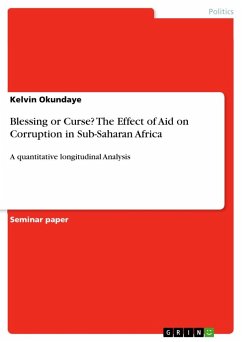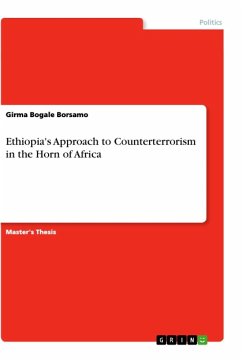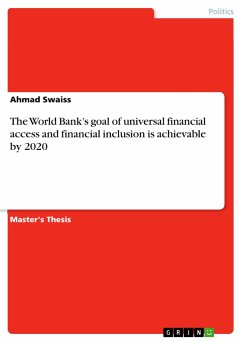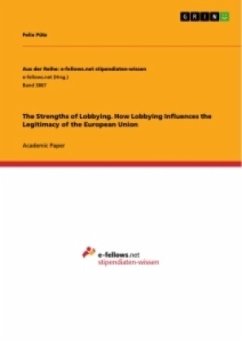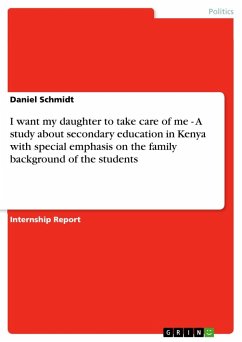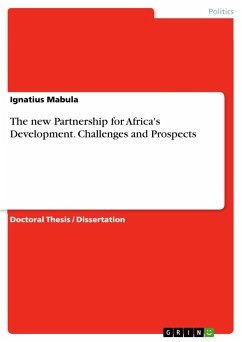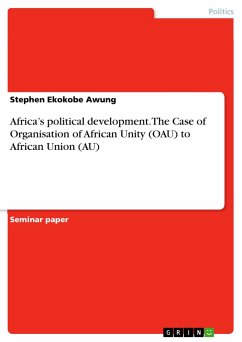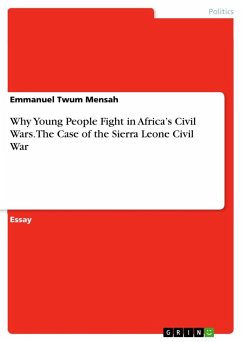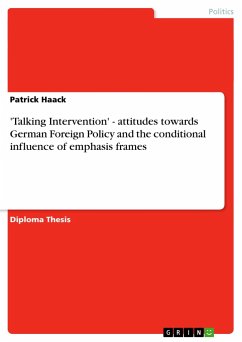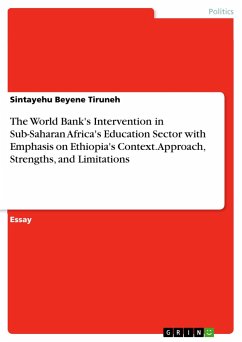
The World Bank's Intervention in Sub-Saharan Africa's Education Sector with Emphasis on Ethiopia's Context. Approach, Strengths, and Limitations
Versandkostenfrei!
Versandfertig in 1-2 Wochen
15,95 €
inkl. MwSt.

PAYBACK Punkte
0 °P sammeln!
Essay from the year 2016 in the subject Politics - International Politics - Topic: Development Politics, , language: English, abstract: Nowadays regional and national policies are intertwined with and influenced by global policy actors. In this era of globalization, education policy is no longer an exclusive matter of the nation state, and it becomes a concern for an international agenda. According to Heyneman, with an increased concern of international agencies such as the World Bank, national education policies, in one way or another, are inevitably framed by global actors. As seen by Molla,...
Essay from the year 2016 in the subject Politics - International Politics - Topic: Development Politics, , language: English, abstract: Nowadays regional and national policies are intertwined with and influenced by global policy actors. In this era of globalization, education policy is no longer an exclusive matter of the nation state, and it becomes a concern for an international agenda. According to Heyneman, with an increased concern of international agencies such as the World Bank, national education policies, in one way or another, are inevitably framed by global actors. As seen by Molla, more than at any time before, international agencies and donors make use of diverse mechanisms to manipulate policy directions in aid beneficiary countries. Sub-Saharan African countries are resource dependent on external agencies through aid, grants or loans; and this fact often forces them to follow the policy decisions taken by their donors.In this essay, an attempt is made to discuss the World Bank's approach, its strengths and limitations with regard to education sector policy interventions in Sub-Saharan Africa focusing on the Ethiopian context. In view of this, the paper briefly juxtaposes Ethiopia's political, economy and socio-cultural context with that of the World Bank's ideology and orientation. Based on this, reflection and criticisms have also been forwarded. Finally, a conclusion is drawn and the resulting implications are presented.The essay argues that international policy actors, mainly the World Bank, tend to impose policy recommendations and reform programs to Sub-Saharan Africa regardless of the context of the particular nation states. Moreover, the paper intends to stress that although the World Bank asserts pursuing a comparative orientation in its policy studies and intervention, its practices in low-income countries witnessed that the Bank often infused ideologies which might have worked well in other part of the world. More specifically, I argue that controversial neo-liberal policy prescriptions were enforced in Ethiopia's national education sector without having aligned them with the country-specific situations.



